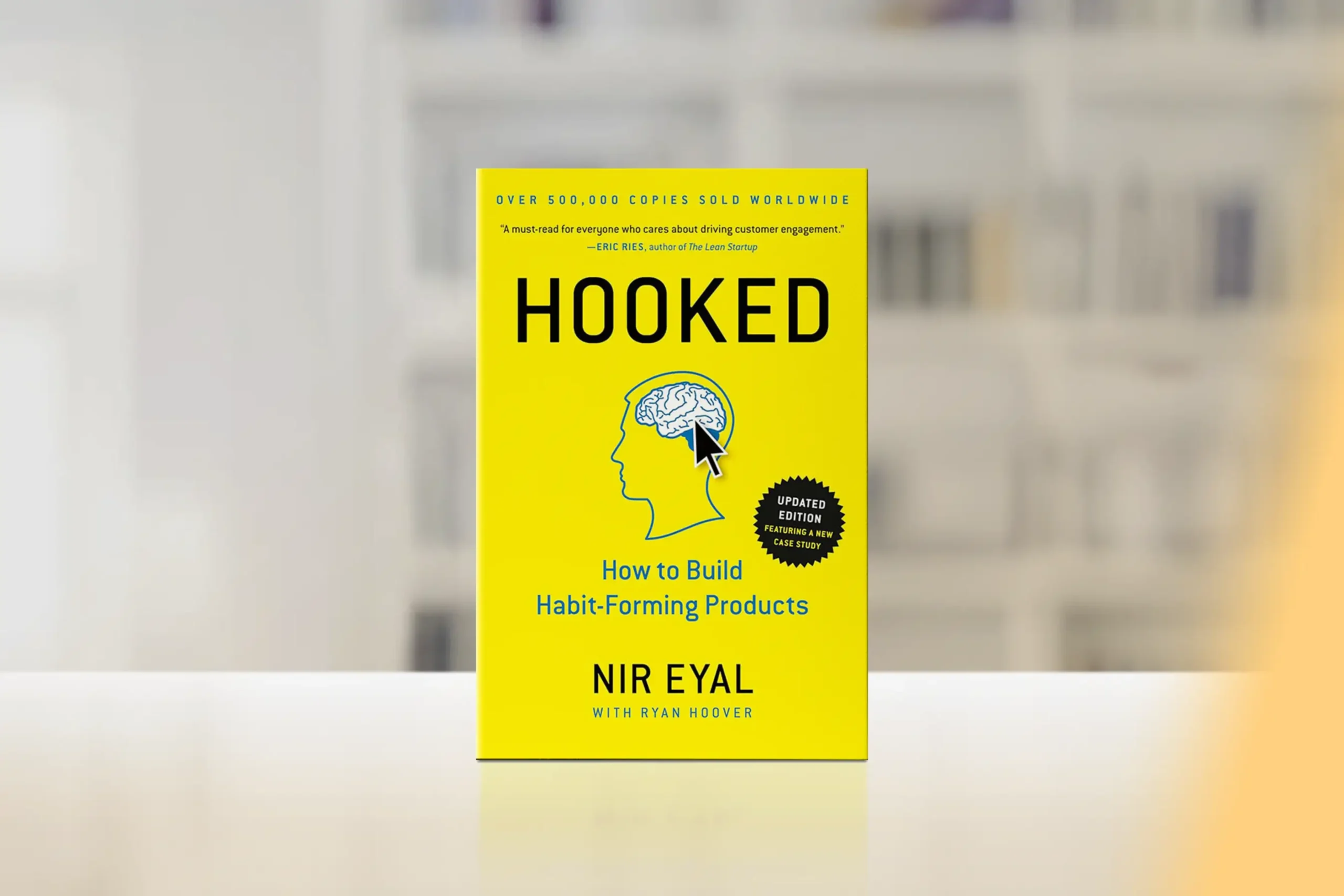In today’s fast-paced and interconnected world, the ability to persuade and influence others has become an essential skill in both professional and personal life. From marketers aiming to influence potential buyers to leaders aligning their teams on goals and strategies, persuasion is a critical component of success.
Marketers typically spend 70% of their time creating content and strategies focused on persuasion, such as emails, social media posts, and presentations (Source: HubSpot). For leaders and executives, 45-50% of meeting time is often devoted to influencing others to align on goals or strategies (Source: Harvard Business Review). In fact, a study found that professionals spend an average of 2.5 hours per day trying to influence others (Source: Training Magazine).
Persuasion isn’t limited to just meetings and new business; we spend countless hours convincing people through phone calls, emails, and other interactions. As Robert Cialdini explores in his seminal book “Influence: The Psychology of Persuasion”, understanding the key principles of persuasion can significantly enhance your ability to communicate effectively and achieve your goals.
However, it’s crucial to approach persuasion with integrity, as Dale Carnegie emphasizes in “How to Win Friends and Influence People”. This article will delve into the art of persuasion, providing strategies for influencing others while maintaining your ethical compass.
Understanding the Psychology of Persuasion
The foundation of effective persuasion lies in understanding human psychology. People are more likely to be influenced by those they like, trust, and perceive as similar to themselves. Building rapport and establishing common ground are essential first steps in the persuasion process.
One powerful technique is the use of social proof, which leverages the human tendency to follow the actions of others. By highlighting how others have benefited from your idea or product, you can create a compelling case for your audience to follow suit.
Another key principle is reciprocity – the idea that people feel obligated to give back when they receive something of value. By providing genuine value upfront, whether through information, assistance, or resources, you create a foundation of goodwill that can make others more receptive to your ideas.
As you dive deeper into the psychology of persuasion, consider reading Emotional Intelligence: The Key to Personal and Professional Growth to further understand how emotions play a role in decision-making and influence.
Developing Your Persuasive Communication Skills
Effective persuasion relies heavily on your ability to communicate clearly and confidently. Start by understanding your audience’s needs, concerns, and motivations. By framing your message in terms of how it benefits them, you’re more likely to capture their attention and interest.
Storytelling is a powerful tool in persuasive communication. By weaving compelling narratives that illustrate your points, you create an emotional connection with your audience and make your ideas more memorable.
Active listening is another critical component. By genuinely listening to others’ perspectives and concerns, you demonstrate respect and create opportunities to address their objections proactively.
To further hone your communication skills, explore resources like The Art of Effective Goal Setting and Achievement, which can help you articulate your persuasive goals more clearly.
Building Trust and Credibility
Persuasion is most effective when it comes from a place of trust and credibility. To build trust, it’s essential to be authentic, transparent, and consistent in your words and actions.
Demonstrating expertise in your field is another way to establish credibility. By sharing your knowledge and experiences, you position yourself as a reliable source of information and guidance.
Importantly, trust is built through actions, not just words. Following through on your commitments, being accountable for your mistakes, and consistently acting with integrity all contribute to a foundation of trust.
Consider checking out Dare to Lead by Brené Brown for more insights on building trust and credibility in leadership and influence.
Navigating Resistance and Objections
Persuasion is rarely a smooth process. It’s common to encounter resistance, objections, and even outright rejection. The key is to approach these challenges with patience, empathy, and a problem-solving mindset.
When faced with resistance, seek to understand the underlying concerns or fears driving the pushback. By acknowledging and validating these concerns, you create an opportunity for open dialogue and collaborative problem-solving.
It’s also important to be prepared with clear, well-reasoned responses to common objections. Anticipate potential pushback and have compelling counterarguments ready.
Remember, the goal is not to “win” the argument but to find a mutually beneficial solution. Sometimes, the most persuasive approach is to be open to compromise and to find a middle ground that addresses everyone’s needs.
For more strategies on overcoming resistance, read Overcoming Fear and Doubt: How to Follow Your Own Path.
Leading by Example
One of the most powerful forms of persuasion is leading by example. When you embody the values and behaviors you seek to inspire in others, you create a compelling case for others to follow your lead.
Leading by example requires consistency, authenticity, and a willingness to walk the talk. It’s not about perfection but about striving to align your actions with your words and values.
When you lead by example, you create a culture of trust, respect, and integrity that can be incredibly persuasive. Others are more likely to be influenced by your ideas when they see you putting them into practice in your own life and work.
The Ethics of Persuasion
While persuasion is a powerful tool, it’s crucial to approach it with a strong ethical framework. Persuasion should never be about manipulation, deception, or coercion.
Ethical persuasion is about presenting your ideas clearly and honestly, respecting others’ autonomy and right to make their own decisions. It’s about seeking to create win-win outcomes rather than exploiting others for personal gain.
Maintaining integrity in your persuasive efforts requires self-awareness and a commitment to your core values. It means being willing to walk away from opportunities that compromise your ethics, even if they offer short-term benefits.
To dive deeper into the ethics of influence, check out Crucial Conversations by Patterson, Grenny, McMillan, Switzler and Gregory
The Rise of AI and Its Impact on Ethics
As artificial intelligence (AI) continues to advance and become more integrated into business processes, it’s important to consider its potential impact on persuasion and integrity. While AI can be a powerful tool for personalizing messages, generating content and optimizing persuasive strategies, it also raises concerns for “hallucination” – generating outputs that seem plausible but are not grounded in reality.
As businesses embrace AI in their persuasion efforts, it’s crucial that ethical principles are applied, ensuring the accuracy and fairness of AI-generated content, and providing human oversight to catch and correct any potential hallucinations. Moreover, as AI becomes more sophisticated in understanding and influencing human behavior, it’s important for individuals to develop critical thinking skills and media literacy to discern between genuine persuasion and AI-driven manipulation.
For a deeper exploration of the ethical implications of AI in business, consider reading Human Compatible: Artificial Intelligence and the Problem of Control by Stuart Russell.
Practical Application
As you work on developing your persuasion skills, consider these practical steps:
- Week 1: Reflect on your persuasive goals and the ethical considerations around them. Clarify your intentions and commit to an integrity-based approach.
- Week 2: Practice active listening in your daily conversations. Seek to understand others’ perspectives before presenting your own.
- Week 3: Craft a compelling narrative around an idea you want to advocate for. Focus on framing it in terms of benefits to your audience.
- Week 4: Lead by example on a small scale. Identify a behavior or value you want to promote, and focus on embodying it consistently in your own actions.
24-Hour Challenge: The next time you face resistance to an idea, pause and seek to understand the other person’s concerns. Approach the discussion with openness, empathy and a collaborative problem-solving mindset.
Persuade with Purpose
True persuasion is not about pushing your agenda but about creating shared understanding and finding solutions that benefit everyone involved. By approaching persuasion with integrity, you can become an influential voice for positive change.
Keep these reflections in mind:
- Am I presenting my ideas with honesty and clarity?
- Am I building trust through my actions as well as my words?
Your next step is to identify an idea you’re passionate about advocating for. Draft a persuasive narrative around it, focusing on how it benefits others. The world is waiting for your voice to be heard.





